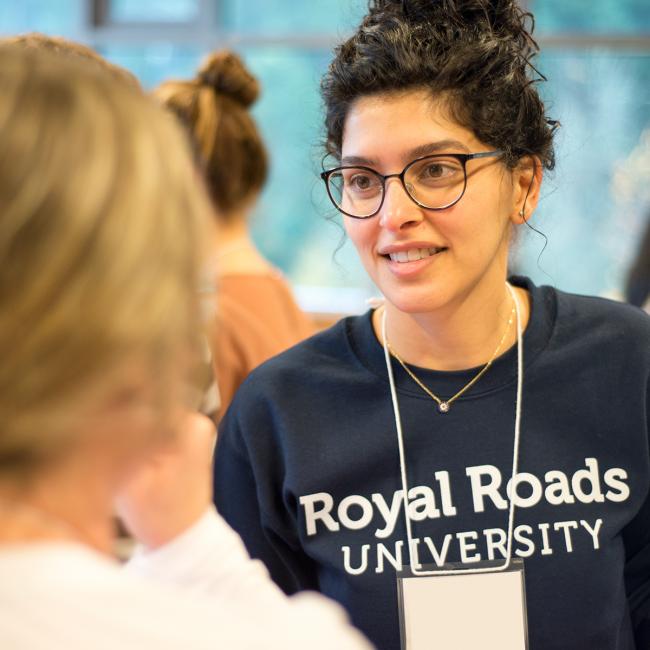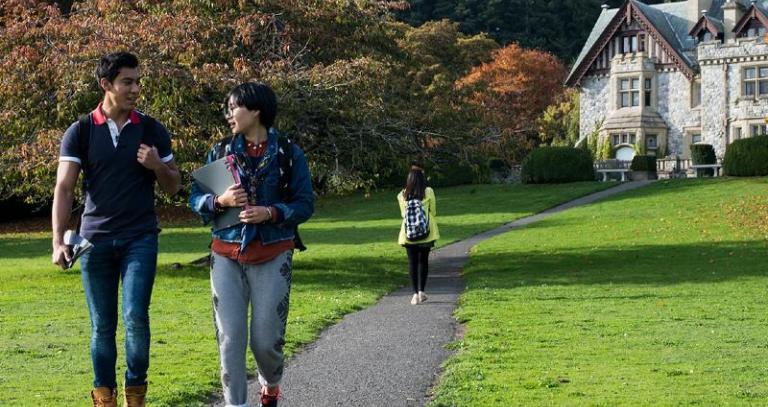Your academic history matters, but at Royal Roads we know you amount to more than that.
Experience a rich and diverse learning environment where you are recognized for your learning accomplishments, in and outside of the classroom.
Explore our programs to find specific admission criteria.
Don't quite meet the academic requirements or English language standards? Learn how our flexible admissions process or language support programs can help you get there.

Application information
Financial aid & awards
Explore financial resources available to you as a student at Royal Roads University.
/admission/financial-aid-awardsTuition & fees
Learn about tuition, fees and other costs so you can plan ahead.
/admission/tuition-feesMore information for:
